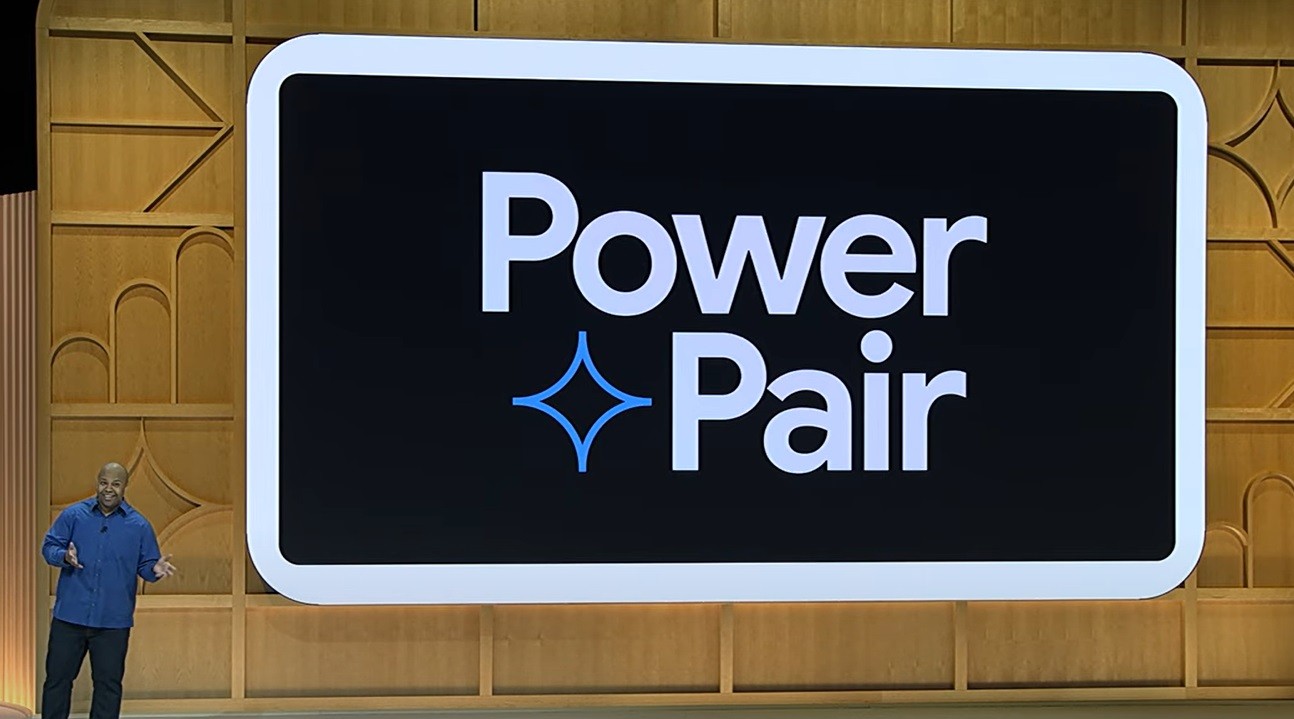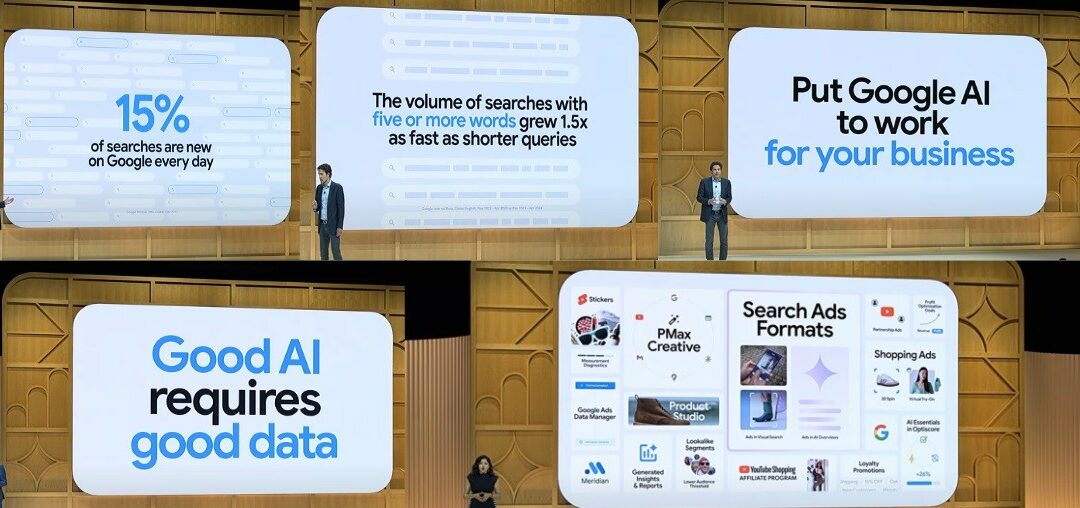Originally posted in June 2024 in my Linkedin Newsletter “the Juggler” (Subscribe Here)
Disclaimer: the following article is based on what has been announced at May’s Google Marketing Live Keyonte and can be found here and are personal considerations, based on my long term experience in digital
I created “the Juggler” in order to have a place where writing personal views and ideas connected to the different subjects connected to my actual or past professional life.
As most of you already know, at the moment as a freelancer I’m focused on Coaching, DE&I and Teaching, even if my long term experience has been on Digital Marketing.
My passion on technology and digital communication is intact, I love following main tech events like Google IO, WWDC, CES and of course GML (Google Marketing Live)
In the last GML Keyone there are some interesting points that I would like to share with you to open the conversation about how AI is changing Search Engine (Results and Marketing) and not only.
Let’s get started.
AI Generated results will take the lead?
“The perfect search engine should understand exactly what you mean and give you back exactly what you need”- Larry Page.
This has always been the focus of Google, evolving and adapting the algorithm for more complex queries, adding Images, Video and search results, to provide relevant answers to users. The better results you provide, the more complex the queries become. As a result we’re confident to do more complex queries to the search engine.
According to Google, over the past 6 months, the volume of searches with five or more words grew 1.5x as fast as shorter queries, compared to the same period last year.
This is a key message and the question is: how long will it take for these complex queries to take over in terms of volumes compared to shorter ones?
The Impact of Google Overview
Let’s take another statement of GML “People Use Google Overview actually use Search more and are more satisfied with their results”.
What is the main feature of Google Overview? creating an AI generated page, summarizing content from different sources, reducing the need of surfing different pages.
Initial testing (last year) made on early beta AI generated results, confirmed that AI Overview could lead to an 18-64% decrease in organic traffic, for some websites in particular those involving Informational-type queries.
Question is: what will be the impact on traffic (organic and paid) to “informative pages” of Brands and e-commerce sites?
Is very important to keep on tracking KPIs and all your web analytics metrics to understand impact on your customer journey, including conversions as soon as AI Overview is rolled out outside Us.
Potential Impact on Paid traffic
Is still early to forecast if and when Ai generated page results will have a strong impact on paid traffic, it is true that during GML Keynote the different examples and use cases were focused on Shopping ads format, targeting B2C e-commerce, with only one Omnichannel Case (Pandora).
This has been confirmed also by other announcements: YouTube sessions in GML has been focused on performance and shopping as well as Youtube integration with Shopify. Last but not least, product feeds has been added also to DemandGen, the newly launched mid-top funnel fully automated Google campaign, combining Youtube, Discovery and Gmail.
Takeaway? check your feed marketing strategy as it will be even more relevant in the future.
Search Engine Marketing..”is dead” – Welcome to Power Pair

Performance marketing is not search-only anymore. Google has launched the concept of “Power Pair”, combining Google Seach Ads campaign with Performance Max: the fully automated, cross property campaigns-type Google launched 3 years ago.
The combination of these two sources of conversions is not just a nice to have: the company claimed a “up to 27% increase in conversions”. Quite relevant and growing: at 2022 GML keynote the conversion rate uplift claimed for Search ads plus pMax was “just” 13%.
Some “missing points”
- Conversions, beyond ecommerce. Apart from the above mentioned Omnichannel case (based on “traditional” Store visits and Local inventory Ads), I found little or nothing related to other kind of conversions type (Lead Generation, App install, Hotel booking, Flights). I believe it has just been a matter of limited time and early focus on “low hanging fruit”: B2C e-commerce
- No coverage on B2B use cases for Google Ads, probably because conversion types are falling in some consumer descriptions (i.e. Lead Generation)
It’s a wrap
This is what has impressed me of the last Google Marketing Live.
I decided not to cover important points like Generative AI for Ads, and may other AI-driven features as the topic above mentioned are the one that have interested/impressed me most for long term impact.
What do you think? Any suggestions?
Let’s start the conversation.

